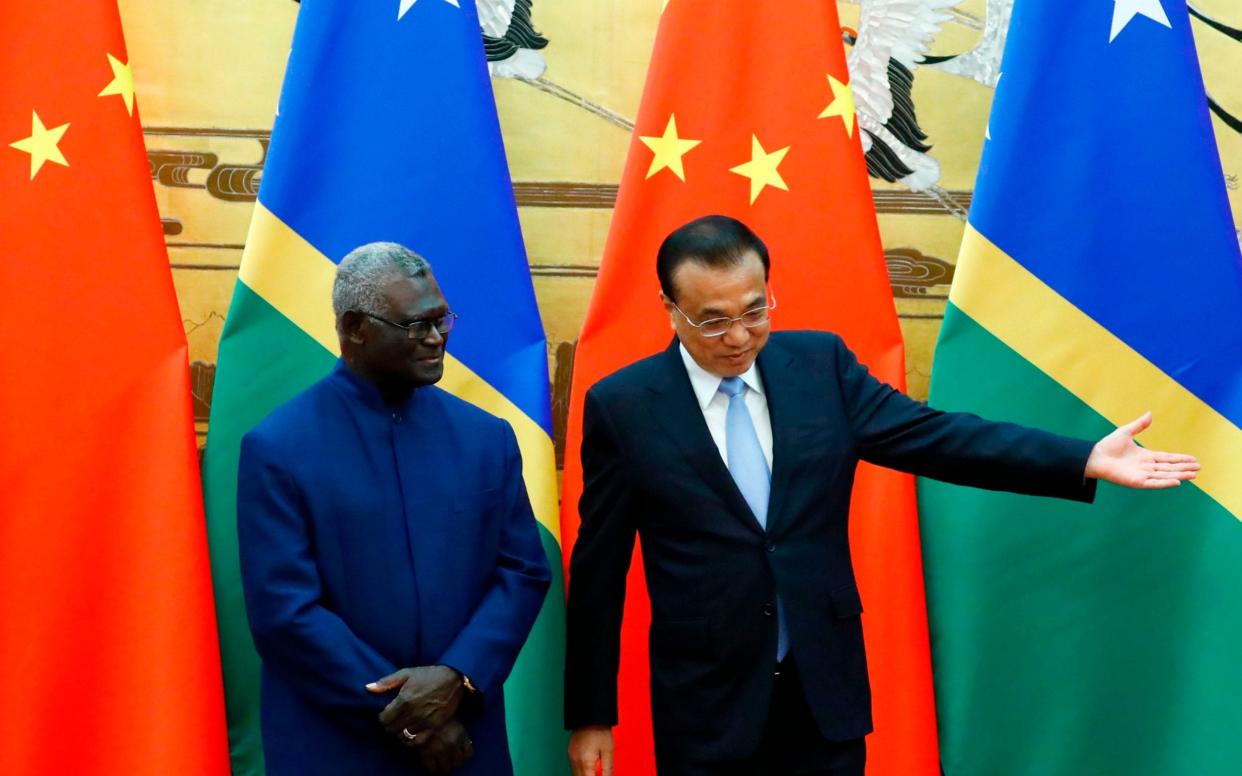Fears of military build-up as China secretly leases entire island in Solomons

The government of the Solomon Islands has reached a secretive deal with a Chinese company with close ties to the Communist party that grants it exclusive rights to develop Tulagi, once the seat of British colonial rule in the Pacific archipelago.
The confidential arrangement has alarmed residents and raised fears that Beijing could be planning to use the tiny territory for future military rather than just commercial purposes.
Tulagi, which has a protected deepwater harbour, has long been viewed as a strategic outpost. Japan occupied the island during the Second World War in 1942 before it was seized by the US marines in a fierce battle.
China extended its reach last month after it persuaded the Solomon Islands and the Pacific nation of Kiribati to switch formal diplomatic ties from Taipei to Beijing, as it seeks to expand its influence in the Indo-Pacific region while undermining the US and its allies’ strategy there.
A copy of the “strategic cooperation agreement” which sets out a renewable 75-year lease was granted to the China Sam Enterprise Group, a conglomerate founded in 1985 as a state-owned enterprise, according to the New York Times, which obtained a copy.
The vague wording of the document has sparked suspicion that it could be used for infrastructure that shares both civilian and military uses, causing concern among US officials who see the island chains of the South Pacific as crucial to protecting important sea routes, said the Times.
Dated September 22, the deal mentions provisions for a fishery base, an operations centre, and the “building or enhancement of the airport,” noting also that the company has ambitions to build an oil or gas terminal even though there are no confirmed natural reserves.
The Solomons’ authorities have not commented on the reports, but Stanley Maniteva, the provincial governor, told the local media earlier this week that the agreement had not been completed and formalised.
But the news follows reports earlier this year that Pacific nations would seek new, stronger ties with China as they pivot away from traditional allies towards Beijing.
In a speech in February in Port Vila, Vanuatu, Dame Meg Taylor, the secretary general of the Pacific Islands Forum, an intergovernmental body, said it was time to debate how to “collectively engage” with Beijing to gain access to its markets, technology, financing and infrastructure.

